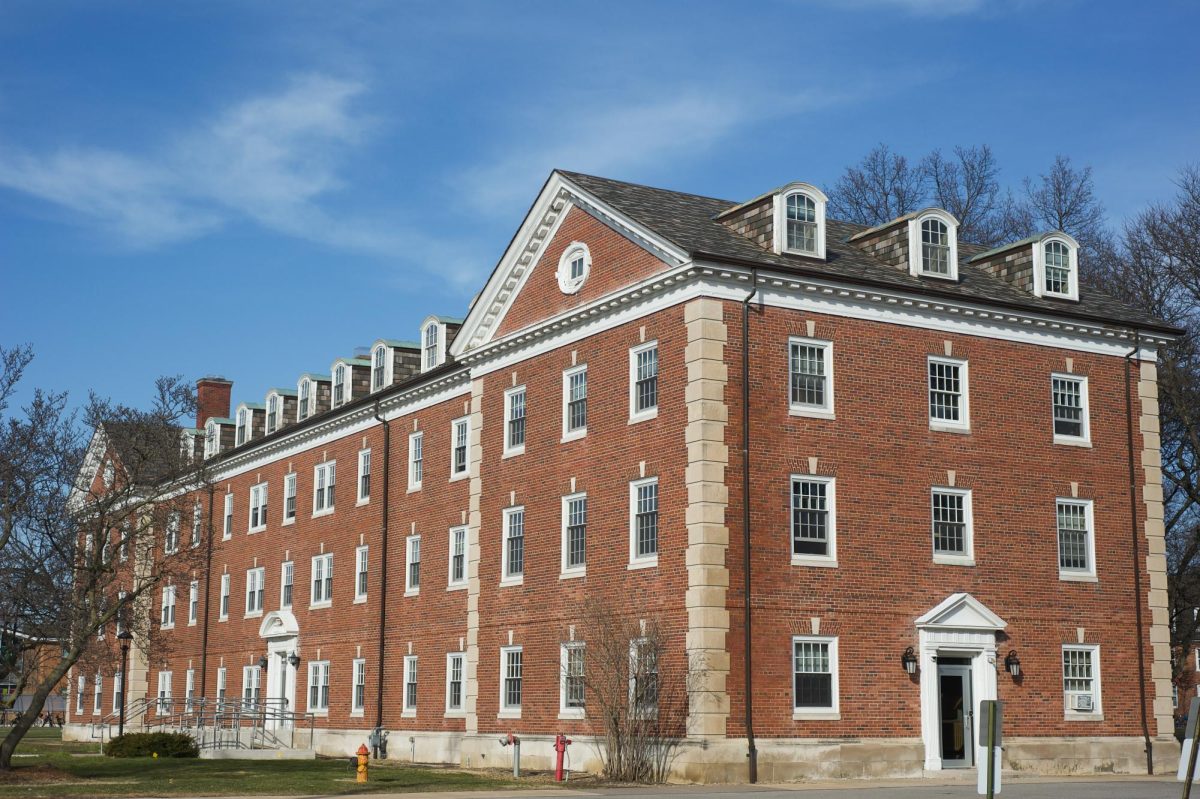As an incoming first-year, one of the main things about Oberlin that stuck out to me was their commitment to inclusivity and emphasis on community. On the front page of the Housing Selection section of the Office of Residence Life’s webpage, it states that “Oberlin College & Conservatory considers residential life integral to a student’s development and believes that having students living and dining together fosters community, discourse, and debate. Therefore, all students must live in College housing (ResLife) or an Oberlin Student Cooperative Association co-op through graduation unless an exemption has been granted.” Reading this statement, I was pleased to know that my prospective college was in alignment with my values and understood the importance of comfortable living spaces. However, the continuous housing assignment issues have not proved this statement to be true.
Coming into my first year, I was excited to try out the unique housing options that other colleges don’t usually offer. I applied to live in Kahn Hall, the sustainability based dorm which is a part of the First Year Residential Experience. Kahn had all the amenities a first-year could ask for including air conditioning, kitchens on every floor, a game room with a pool and foosball table, TV rooms, practice rooms, and a fancy piano room with adjustable lighting — my personal favorite — all communal places where students could meet, bond, and form a community. And that was what we did. The common spaces in each wing of Kahn are at the entrance of each hallway, requiring us to pass by them on our way to our rooms. This placement provided an opportunity for residents to get distracted by a movie that was playing and end up staying for the rest of it. The third floor Kahn bond was extremely strong, and I believe it was largely due to the common areas.
This year, I live in a converted common room triple in South Hall, and I have not experienced the same camaraderie that I valued while living in Kahn. This problem may be attributed to the fact that there are limited spaces for students to gather, since common rooms were turned into triples to accommodate for the lack of housing space. Oberlin did not offer triples as a housing option prior to the COVID-19 pandemic, but due to the Office of Admissions’ continuous over enrollment, ResLife has had to take new measures to accommodate the influx of new students at the expense of its current ones.
The housing crisis is an ongoing issue that Oberlin has been subjecting students to for years now, and it is creating lasting impacts on the student body’s experience. Housing situations are an integral part of students’ lives and should not be handled with such complacency. The new dorm hall that is scheduled to open in fall 2025 brings hope for the future of the housing shortage. This dorm will consist of four floors and 401 beds, which will primarily consist of four-person suites featuring private bedrooms for each resident and a shared bathroom, kitchenette, and dining area. After this dorm opens, I hope that Oberlin converts the forced triples back into common rooms in an effort to rebuild the dorm community that it supposedly considers “integral to a student’s development and believes it fosters community, discourse, and debate.”
Last semester, students received an email from ResLife on April 28 outlining that the General Housing Lottery would be held May 3–5. Inconveniently, this was also during the last week of classes and the week before final exam period. So, along with the stressors of finals, students had another important task put on their plate that could not be avoided. The email detailed that on May 1, students would receive an email telling them which time slot they were randomly assigned. On the second morning of the housing lottery, ResLife sent a follow-up email to students giving them an updated list of limited rooms that were available. This email was unexpected since it was only the second day of housing selection, but it wasn’t the end of the world, since there were still some rooms available. Later that day at around 5 p.m., students whose time slot had not yet come received a second email informing them that “the General Housing Lottery has ended due to current space availability.” The College had somehow run out of housing space for students on the second day of registration, and they directed the unlucky minority to a Google Form to be put on the summer waitlist.
This chain of events was alarming for rising second-years, but it was not a new occurrence. So the cycle began again, where students panicked as ResLife told them not to panic. Students, pessimistic that they would be placed in a housing situation not even relatively close to what they preferred, were left helplessly worrying about the comfort of their housing until some unspecified time in the summer. The only reassurance provided was the reiteration to “please be assured that you will be given priority status on the waitlist so that you will receive your assignment quickly.” It was unclear how they had run out of available space for returning students even though, according to the Life at Oberlin website, Oberlin requires and guarantees on-campus housing to students for all four years.
At the start of the return to fully in-person learning, the process was even more disorganized than it is now. Students expressed their dissatisfaction with the system that placed general housing students into identity-based housing, defeating the purpose of a safe space for specific communities. For a college that considers residential life integral to students’ development and community, one would assume that this would be reflected through a hardcore revision of the unstable housing process.
Last year, I can remember passing by the common space everyday on the way to my room and being met with a warm greeting from my fellow first-years doing homework or watching a movie together in the common area. This year, as I walk into South Hall to enter my common room triple, I find myself longing for the moments like those that made Oberlin feel like home. This area fostered an inclusive environment throughout our hall that students in South, Burton, and East Hall may never get to experience due to the transitional housing that deprives us of our common rooms. It may be argued that South’s large common space on the first floor makes up for the lack of original common rooms. However, this area is not integrated into our lives, since residents do not have to pass it to get to their dorm.
Oberlin can feel like a bubble as is, but our student body comes from diverse backgrounds that we should take advantage of. Having spaces that remind us that there is a world outside of Oberlin would alleviate feelings of isolation. I entered Oberlin with the belief that, no matter the housing situation I was placed in, I would feel a sense of community. But this year has proved that that is not the case. The housing crisis is an ongoing issue that Oberlin has been subjecting students to for years now, and it is creating lasting impacts on the student body’s experience. Housing situations are an integral part of students’ lives and should not be handled with such indifference.




